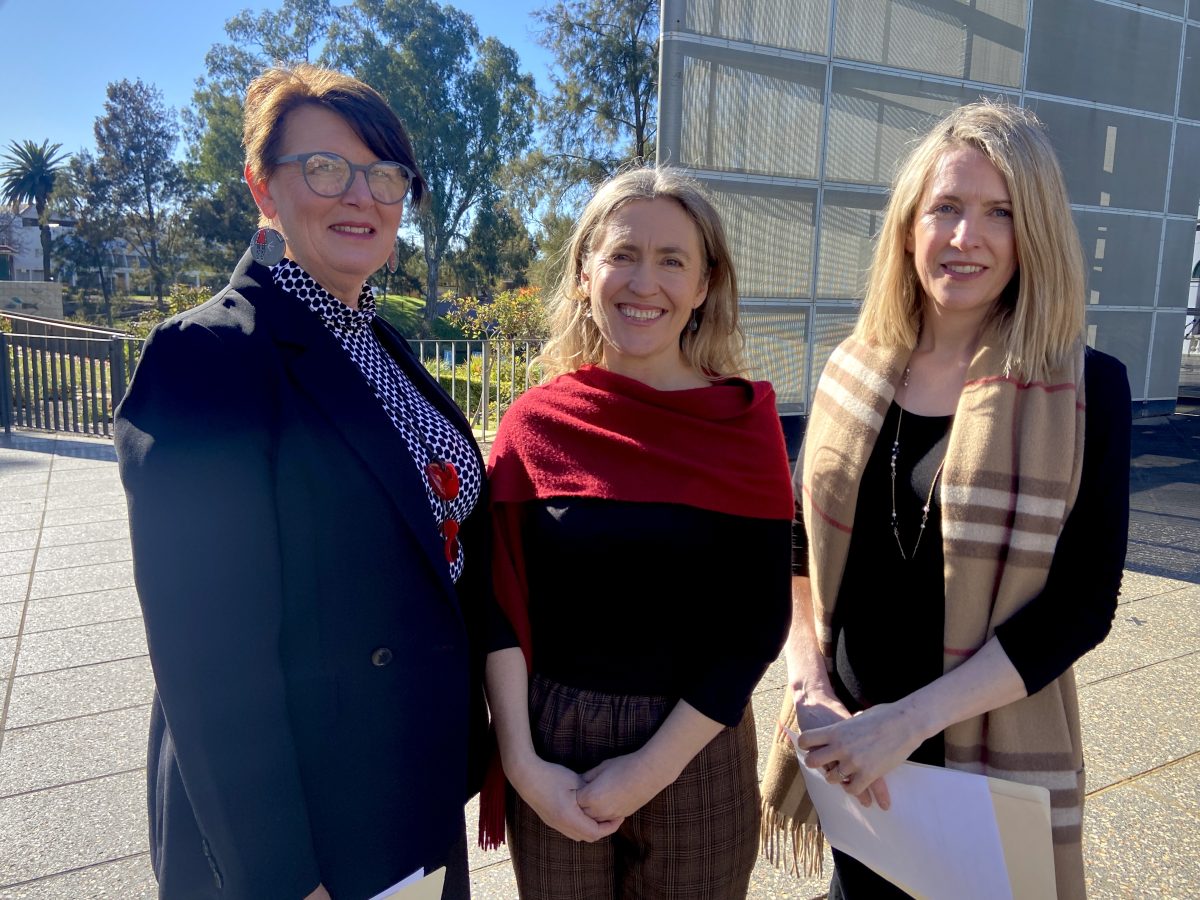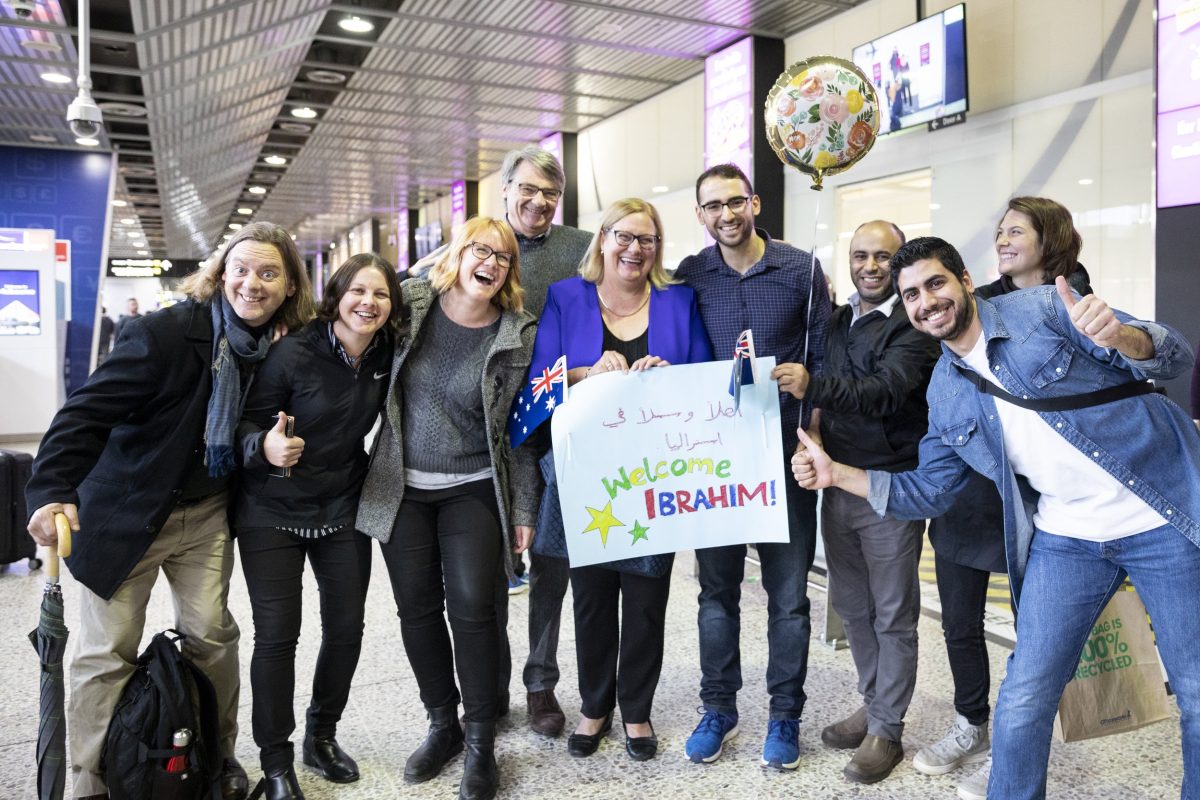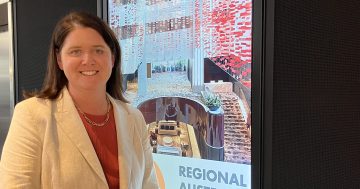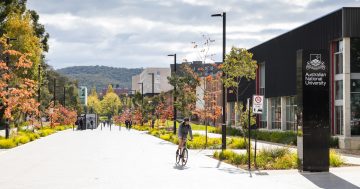
Anna Stephenson, Jemma Bailey and Dr Claire Higgins launched the new study in Wagga this week. Photo: Chris Roe.
A world-first research project was launched in Wagga this month to explore a new approach to migration, matching skilled refugees with regional jobs.
The project is a collaboration between the University of New South Wales (UNSW), The Australian National University (ANU), NGO Talent Beyond Boundaries (TBB) and the Regional Australia Institute (RAI) and the findings will be used to inform government policy.
RAI’s Anna Stephenson said regional Australia’s chronic skill shortages could be addressed through the targeted recruitment of highly skilled refugees.
“Regional Australia is just crying out for workers … so it’s really important that this project shows the way we can better activate refugee talent to fill some of those vacancies,” she said.
“Wagga makes a brilliant case study. It is a growing economy. It has a track record of welcoming refugees and being a refugee welcome zone, particularly with the Yazidi population coming to Wagga.
“It is a place that is renowned for providing a welcome both by employers and the community itself.”
The four-year research project will span the country and ANU’s Dr Sally Baker said the research could help the Australian Government realise its aim to bring an additional 10,000 refugees through ‘complementary humanitarian pathways’.
“Sharing the opportunity of resettling talented and qualified refugees with employers in areas and professions that have critical gaps has huge potential to help shift the dial on many fronts,” Dr Baker said.
“However, it requires careful attention to the communication of the opportunity, as well as developing and strengthening ‘arrival infrastructures’ in regional areas that are relatively new to resettling people with forced migration experiences, and this is what our study will examine.”
Dr Claire Higgins, from UNSW agreed that the research could enhance Australia’s contribution to global refugee protection and benefit our communities.
“The Australian Government has recently flagged its commitment to expanding those opportunities outside the humanitarian program,” she explained.
“And so our question, embarking on this new research project, is to say well, how can we best do that in a way that benefits Australian communities and refugees themselves and is sustainable long term?”

Talent Beyond Boundaries is running a pilot program in Australia connecting employers with skilled refugees. Photo: Talent Beyond Boundaries.
Jemma Bailey represents Talent Beyond Boundaries which already operates a pilot program in Australia and will provide a case study for the research.
The Skilled Refugee Labour Agreement Pilot connects with Australian businesses looking for workers with particular expertise, presents them with potential candidates from its database and then supports the process from interview to labour agreement.
“It’s a pilot visa program that puts in place concessions to remove the barriers that refugees normally face in skilled migration and we think there’s enormous potential in regional Australia,” Ms Baily said.
“We have a database with over 100,000 refugees and most of the people in there are highly skilled, they have good levels of English, university degrees and skills in those key areas that we need them in.
“So it’s an enormous talent pool and it’s a talent pool that to date hasn’t been visible and accessible for employers in regional Australia.”
Dr Higgins said the research would also examine the support services required to make the program work.
“That holistic picture is so important to whether or not a person can come and take up a job, settle with their family and have that relationship with that employer and that community be successful and enduring,” she said.
“Even though the person who takes up the job might have great English skills, perhaps their spouse still needs English classes, and their children will need that to go to school.
“So there’s a lot of extra support that may be needed for that family to help them make their settlement a success.”
Fieldwork relating to the project is expected to get underway next month, with a final report due to be published in 2027.
Original Article published by Chris Roe on Region Riverina.









